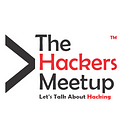How The Blockchain Could Transform SCADA Security
We rely on SCADA systems quite a bit for our critical infrastructure in today’s world, and that means we need to worry not just about efficiency. — Security For many years SCADA has been controlling the power, water, and manufacturing industries. Meet blockchain — the game-changing disruptive technology popularized by cryptocurrency and soon to make a major impact on SCADA protection. But where does this digital ledger system fit into industrial control systems?
Maybe blockchain could be the hero SCADA systems never knew they needed.
1. Is SCADA Decentralized Security’s Achilles’ Heel?
Down To Basics, Traditional SCADA systems follow a centralized model which means they are on the wrong side of attackers. After a firewall has been penetrated or an attacker can compromise the central node the whole network can be effectively held ransom by a single person and turned off totally. It all sounds like the plot of a sci-fi movie, but power grids and water treatment plants have been taken out by similar attacks before — as well as oil pipelines.
The solution with blockchain, however, is decentralized. Instead of a single point of weakness, blockchain disseminates details through the network among nodes, meaning hackers could have a hard time hacking it. Every transaction and event are written in the logs which are double validated by nodes, so an intruder has to breach a large part of servers simultaneously. For those in the world of SCADA, where downtime could mean millions or even lives at stake, this extra layer is a real game-changer.
2. Immutable Logs: On-board Witness SCADA Has Always Wanted
Thousands of utility events such as refinery valve changes to dam water flow adjustments must be monitored in real-time by SCADA systems Those logs are not just for tracking; they are the lifeblood of sustaining effective and safe operations. The problem is, once a hacker changes them, you can no longer know which of the records was originally legitimate and what has been altered.
Here, blockchain fills in as nothing, not exactly an advanced watchman -blessed messenger. The moment a transaction is written to the blockchain, it becomes permanent — or rather, code-customized. This makes certain data immutable, that is no hacker can go back and change the records. This delivers peace of mind for any industry relying on SCADA systems. Just imagine the added confidence of knowing that every valve stroke, pressure adjustment, and system alarm is logged — logged perfectly and in perpetuity. This is the kind of security SCADA has always lacked, as it now apparently will continue to.
3. Smart contracts are all about automating security responses like never before.
Alright, let us discuss another interesting aspect of blockchain: Smart Contracts. They are self-executing contracts, where the terms of these contracts are directly written in several lines of code. Basically, it can perform actions automatically when certain conditions are fulfilled.
With SCADA systems, smart contracts can change security protocols entirely. A smart contract might be designed to, say, halt critical operations should the pressure inside a system show an unusual spike or deny access automatically for any improperly authenticated user. Smart contracts have the advantage of completely removing human error — they do not wait for a tired operator to see an anomaly and react. The system takes care of it automatically for you.
4. Cyber-Resilience: Outlasting Modern-Day Attacks
Cyberattacks are not new to SCADA systems. The threats are increasing, from ransomware to data breaches, and traditional defense measures may not keep up. However, due to Blockchain’s distributed and resilient nature, the SCADA systems will be up and running more quickly than ever before. Even if a single node is attacked, the system remains functional because every action transaction and event has been verified by all nodes of the network. Blockchain provides integrity to SCADA — even in fire.
5. Keep Insider Threats at Bay with the Invisible Wall
Unfortunately, one such thought is the fact that oftentimes hackers are not coming from outside but inside; workers who have an enormous amount of power and very few checks. It is also hard to prove who did what and when in traditional environments. The transparent and auditable nature of blockchain, however, means that such insider activity is almost impossible to hide. All their behavior would be transparent and auditable to the entire blockchain. Thus, SCADA needs this invisible shield in the 21st century, industrial espionage, and internal sabotage age.
Blockchain Meets SCADA: A Cybersecurity Romance Made in Heaven
The SCADA systems lie at the heart of the most critical infrastructure in society, yet we have done so little to secure these devices. Using blockchain which is inherently built on a decentralized architecture, along with immutable logs combined with smart contracts could redefine SCADA to be cyber-resilient. This means stopping attacks before they even occur, not just halting them.
We are serious about safeguarding the industries that provide us with electricity, water, and food? Blockchain integration with SCADA systems is not just something to be considered, but something that is urgently needed.
Conclusion:
Although blockchain had its inception as the backbone of cryptocurrency, it might also be crucial in protecting both SCADA systems and tomorrow’s infrastructure. For SCADA, a blockchain-based security approach is necessary from decentralized (adaptive perimeter firewalls) to automated smart contract responses that we are accustomed to. So, the next time you think about blockchain, drop Bitcoin from your mind and start looking at it as a solution for industrial systems security.
Written By: Zohra Qureshi
